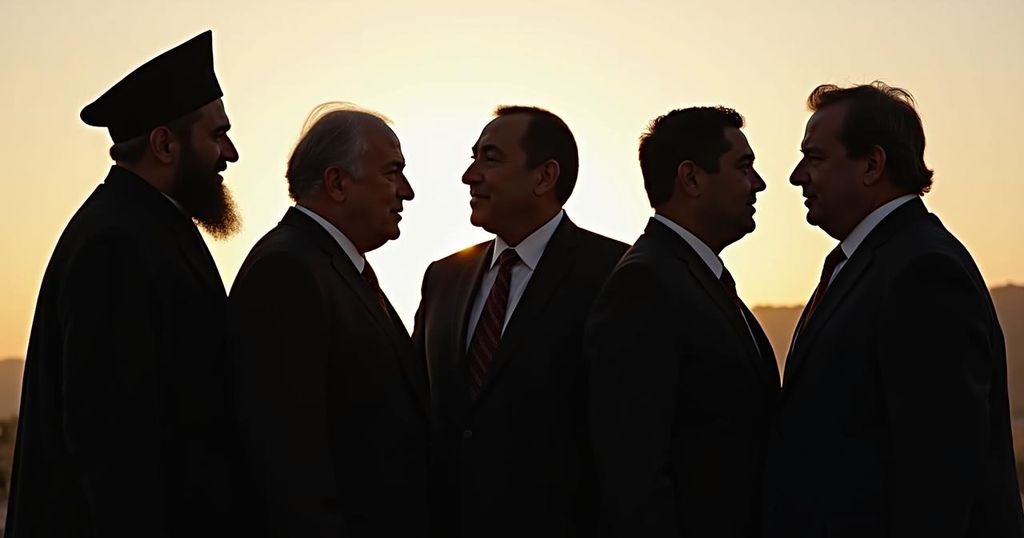Political leaders in the U.S. have shown unified support for Israel after air strikes killed Hezbollah leader Hassan Nasrallah, with President Biden calling the act justified. Critics raise concerns over high civilian death tolls and the escalation of conflict, while calls for diplomatic resolution are largely ignored.
Following the recent Israeli air strikes in Beirut, which resulted in the death of Hezbollah leader Hassan Nasrallah, United States political leaders have expressed unified support for Israel. President Joe Biden and Vice President Kamala Harris, both members of the Democratic Party, along with Republican House Speaker Mike Johnson, have backed the Israeli operation, despite acknowledging the anticipated high civilian casualties. The Biden administration has categorized Nasrallah’s elimination as a just response to his role in the deaths of numerous individuals, including Americans. In a statement released after the strikes, President Biden noted, “Hassan Nasrallah and the terrorist group he led, Hezbollah, were responsible for killing hundreds of Americans over a four-decade reign of terror. His death from an Israeli air strike is a measure of justice for his many victims, including thousands of Americans, Israelis, and Lebanese civilians.” However, this stance has raised concerns among critics who argue that unconditional support for Israel may contribute to escalation, civilian fatalities, and potential infractions of international law. Despite calls for a diplomatic approach to mitigate the tensions in the region, the administration has shown reluctance to exert pressure on Israel, such as suspending arms sales, amidst ongoing destructive strikes into Lebanon that have claimed the lives of at least 1,030 individuals since September 16, including women and children. The impact of Nasrallah’s assassination is significant, particularly regarding the standing of Hezbollah and affiliated Iran-backed groups across the region. The responses from these organizations remain ambiguous. Additionally, while former President Donald Trump has not publicly commented on the incident, conservative members of Congress have dismissed calls for a ceasefire, advocating instead for strengthened support for Israel. House Speaker Johnson remarked, “We call on the Biden-Harris Administration to end its counter-productive calls for a cease-fire and its ongoing diplomatic pressure campaign against Israel.” Furthermore, U.S. Defense Secretary Lloyd Austin assured his Israeli counterpart of the United States’ commitment to defending Israel while maintaining readiness to protect U.S. forces in the region. As the situation evolves, the international community is observing closely, focusing on the implications of this violent escalation in the Israel-Hezbollah conflict.
The recent assassination of Hezbollah leader Hassan Nasrallah by Israeli airstrikes in Beirut has intensified the already volatile situation in the Middle East. Israel’s military actions have escalated since September, leading to high civilian casualties and substantial property damage in Lebanon. U.S. political leaders have quickly responded to these developments, rallying behind the Israeli government even as calls for restraint and diplomacy echo from various quarters, including activist groups and some international observers. With a significant death toll reported following the air strikes, there are increasing concerns regarding the humanitarian impact and the potential for further escalation in regional conflicts involving Iranian-backed militias and Hezbollah.
In summary, U.S. political leaders have expressed overt support for Israel following the killing of Hezbollah’s Hassan Nasrallah, framing it as just retribution. This support comes amid rising civilian casualties in Lebanon and calls for diplomatic solutions to avoid further conflict. Critics of the administration’s approach warn that unconditional backing of Israel may lead to greater escalation and violations of international law. As the situation develops, the responses from Hezbollah and aligned groups will be crucial in shaping the future dynamics of the region.
Original Source: www.aljazeera.com






